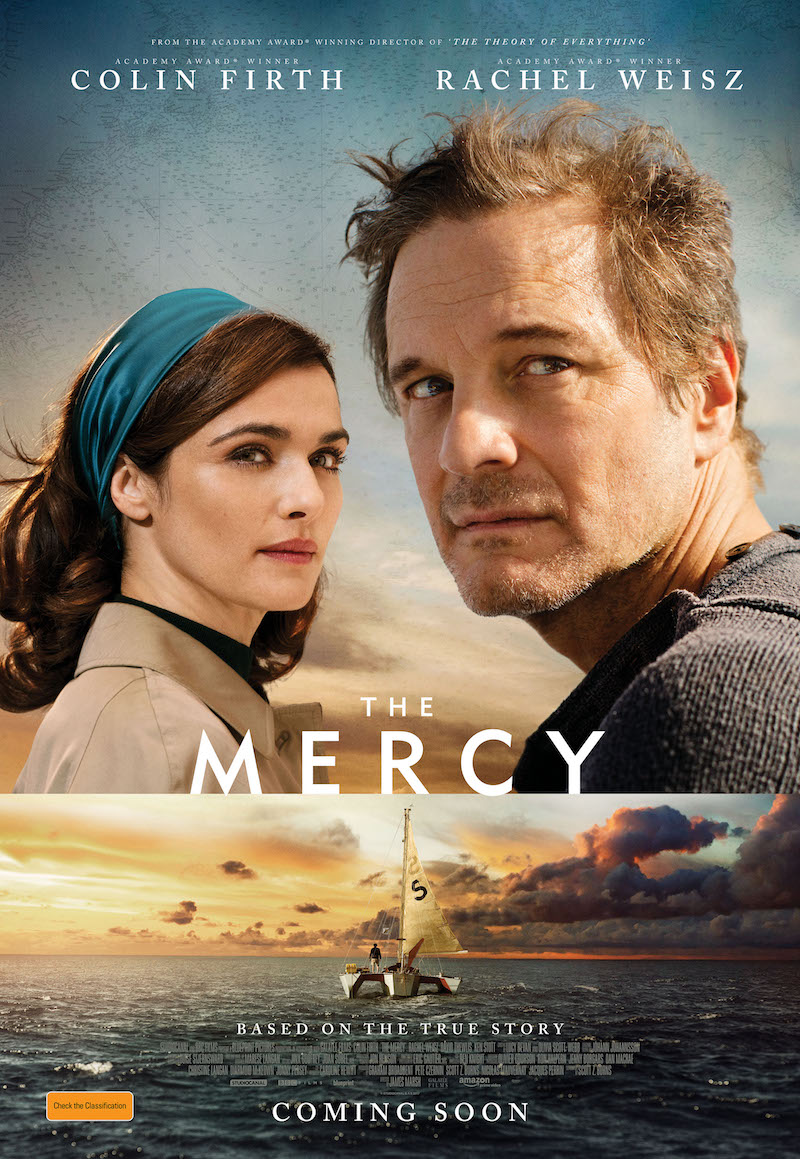By Michael Wastell
Image supplied by Studio Canal
From the director of The Theory of Everything comes The Mercy, a film based on the true story of sailing amateur Donald Crowhurst (Colin Firth) and his attempt to sail around the world non-stop in an effort to win a Times of the World competition. Soon into his voyage, the limits of his skills as a sailor, as well as problems with his self-designed boat, prevent him from making the speedy progress he needs to. Thus, out of desperation, he begins to stretch the truth by reporting his location thousands of miles ahead of where he actually is, and it is then that the film takes an unexpected turn.
As The Mercy progresses, it continues to eschew the typical ‘inspirational true story arc’ and instead spreads its focus on the various moving parts of the narrative. Crowhurst’s inexorable descent into desperation still constitutes the bulk of the film, but a parallel storyline emerges in the form of Crowhurst’s publicist Rodney Hallworth (David Thewlis), and his efforts to maintain public interest in, and support for, the voyage — by embellishing the truth even further. Director James Marsh seems uninterested in the minutia of sailing and navigation, so instead The Mercy posits itself more a reflection on the nature of these extreme feats of endurance and adventure. What compels someone to leave their family and put themselves into total isolation for months at a time? Why do these voyages spark such voracious public interest, despite their often-detrimental effects?
Colin Firth is outstanding as Crowhurst, delivering some of his best work since The King’s Speech; his actions range from understandable to baffling but at no point is his humanity obscured. Scott Burns’ screenplay is deeply sympathetic for what Crowhurst is going through and what he is trying to achieve. Rachel Weisz is solid in a moving, if slightly underwritten role, as Crowhurst’s wife Clare. While not given much to do apart from hand-wringing, Weisz manages to flesh her out into a more three-dimensional character.
Unfortunately, the film is not as great as the sum of its parts. A glaring omission is what drives Crowhurst to attempt this challenge in the first place. He is established as a sailing enthusiast with a reliable job and comfortable life, so why he mortgages his entire business and house in the pursuit of funds to build his boat becomes more of a mystery than anything. Marsh’s flat direction over the first act does little to help matters.
Still, The Mercy is a thought-provoking and ultimately very moving cinematic experience which sheds light on a little known but intriguing true story. On a side note, the film features Jóhann Jóhannsson’s (Arrival, Sicario), penultimate film score and he underscores both the beauty of the open ocean and Crowhurst’s mental fragility perfectly — a testament to a great composer whose ingenuity will be sorely missed.


